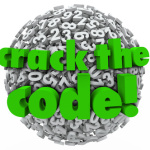How to Profit From Your Local Library
Buying from Lending Libraries
 Here’s another question for you. Do you think there is a market for second hand library books?
Here’s another question for you. Do you think there is a market for second hand library books?
The answer is a resounding “yes”!
Not only do people buy second hand books online but they also buy other used media items, all originally owned by lending libraries.
When I first began buying and selling online, I was convinced that people would shy away from ‘used’ items sourced from a lending library. After all, surely such items would have been borrowed so many times that they would be in a very poor condition?
Well, the truth is that libraries really look after their stock. For instance, they cover most books with a plastic sleeve to reduce the wear and tear of over-handling. If, once you have purchased such a book, you remove the outer sleeve you are normally left with an almost pristine book cover, both front and back.
As long as you accurately describe your library purchase e.g. “an ex library book with usual library stamps & markings” you will find that these items are actually very popular with the buying public. For some reason buyers derive a sense of ‘assurance’ from the fact that the book once belonged to a library … almost a sense of endorsement if you will.
I would go as far as saying that at least 20% of the stock that I sell originally came from a library.
Tips for Buying From Lending Libraries
Regular Book Sales
Most libraries tend to have a small section, usually near the checkout desk, dedicated to selling withdrawn library stock. The prices are usually very reasonable indeed. Most often libraries will charge somewhere between £0.50 pence and £1.50 per book. Sometimes, if the book was originally a high priced item when brand new e.g. a highly detailed reference book, then a library might charge a bit more – perhaps £4 – £5.
The Magic of Buying From Libraries
No matter what prices libraries ask for their books, more times than not they also provide you with a get-out-of-jail free card in the form of free Internet access. My local library will allow me up to one hour of free online access per day and I use it to cross-check the ISBN numbers of the books I would like to buy, against the real-time values on Amazon. This allows you to side-step the risk of buying books ‘blind’.
One-Off Book Sales
Some libraries will save up stock for a one-off large ‘Library Book Sale’ to be hosted several times a year. They usually advertise these special sales in the library itself, in other affiliated libraries, sometimes in the local press but almost always on their own online web page.
Say for instance you live in Essex, just Google ‘Library book sales Essex 2014,’ and up will come a list of links to web pages advertising library sales within the county or surrounding counties. Put all of these in your diary, along with your jumble sale and village fete entries, and that will certainly keep you busy for a few weekends.
Library closing down/Refurbishment sales
When libraries close for refurbishments they invariably hold a ‘massive’ book sale before their close date to free up valuable space. These special sales are well worth looking out for as they can produce a much needed addition to your saleable stock, all at a very reasonable price. Again, these special one-off sales are advertised in the usual places, the library itself, and the local press and of course on the website. So keep a look out for these events.
Libraries Also Sell Other Media
VHS Videos
I’m sure you have possibly heard me praise the saleability of VHS video tapes in earlier eLetters. The trick, when buying, is to know which the most sought-after videos are. In general, I have found that libraries stock the more obscure titles, which can be quite valuable on the resale market.
Music CDs
Experience has shown me that classical CDs can also make good profits when sold on Amazon or eBay, and I have found many local libraries to stock classical CDs on a regular basis.
Music Books and Song Sheets
One last type of media worth keeping an eye open for is music books and song sheets. Generally I would advise steering clear of all, except those which feature an ISNB number. This will allow you to easily match it with existing items of Amazon’s database.
As with the book category, make sure that you avail yourself of your libraries Internet access in order to check the current prices of CDs, videos and song books.
Condition – Important!
It almost goes without saying, but please avoid buying any second-hand media from a library if the condition is poor. Normal library marks and stickers are expected, but damaged or dirty items will not be tolerated, no matter how cheap the item was to begin with.
Time and space prohibit me from expanding further on this topic, but if you are keen to learn more, specifically on topics I have just touched on, such as, ‘How to profit from classical CDs and VHS Videos’, as well as, one of my more lucrative niches: ‘How to profit from Educational Library Books,’ then you might wanted take a look at my new website: www.theProfitBox.co.uk .
Have a great week.
Richard




